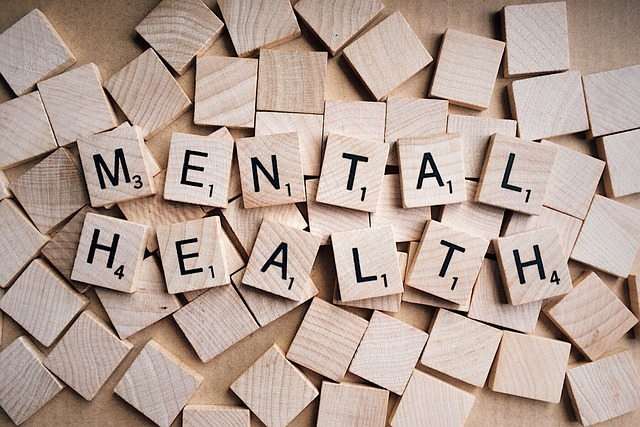10+ Inspiring Journaling for Mental Health Techniques: Your Path to Emotional Wellness
Ever felt trapped in the maze of your thoughts?
Journaling, especially with the right prompts, is like having a personal GPS for that maze.
Imagine a tool that not only helps you navigate your mental health journey but also enhances your well-being and self-awareness.
Let’s embark on this transformative journey together, using journal prompts for mental health as our guide.
What is journaling for mental health?

Journaling for mental health is more than just a diary entry. It’s a dedicated time where you converse with your inner self, reflecting on your day-to-day life, emotions, and aspirations. It’s a powerful tool that offers a safe space for self-expression, helping you gain clarity and manage stress.
Reasons You Need to Know About Journaling for Mental Health
Why pick up a journal in this digital age? Here’s why:
– A Tool for Self-Reflection: It’s your personal mirror, reflecting your emotions, anxieties, and joys.
– Boosts Mental Well-Being: Regularly writing in a mental health journal can be therapeutic, acting as a creative outlet that fosters self-love and compassion.
– Enhances Emotional Intelligence: Dive deeper into understanding your feelings, from the happiest memories to moments of anxiety.
– A Path to Personal Growth: By reflecting on your younger self and setting intentions for the future, journaling aids in personal development.
Step-by-Step Instructions to Start Journaling for Mental Health

Let’s delve into the three core methods of journaling: Reflective, Gratitude, and Goal-Setting.
The Reflective Method

Reflect on your life, emotions, and experiences. Here are 30 prompts to guide you:
1. Describe a moment today that made you smile.
2. What challenged you today?
3. Write about a time when you felt proud of yourself.
4. How did a particular event today make you feel?
5. Reflect on a conversation that stayed with you.
6. Did something unexpected happen today?
7. Write about a memory that surfaced today.
8. How did you practice self-care today?
9. Describe today’s morning routine.
10. Did you learn something new about yourself today?
11. Were there moments of self-doubt today?
12. Write about a negative thought and try to counter it.
13. How did you handle stress today?
14. Describe a moment of joy.
15. Did you face a conflict today? How did you feel?
16. Reflect on your emotions from morning to evening.
17. Did you read or hear something impactful today?
18. Write about a moment of self-discovery.
19. Were you more in the past, present, or future today?
20. Describe a moment when you felt grateful.
21. Did you have a moment of clarity today?
22. Write about something you avoided today.
23. How did you express love today?
24. Reflect on your mental well-being throughout the day.
25. Did you face any anxieties?
26. Write about a moment when you felt relaxed.
27. Did you experience any triggers today?
28. Reflect on your self-awareness today.
29. Write about a moment when you felt connected to someone.
30. Did you have a realization or epiphany today?
The Gratitude Technique

Focus on the positives and things you’re thankful for. Here are 30 gratitude prompts:
1. List five things that made you smile today.
2. Write about someone who made a positive impact on your day.
3. Reflect on a comfort zone you’re grateful for.
4. What’s a recent compliment you received?
5. Describe a recent act of kindness.
6. What’s a personal strength you’re thankful for?
7. Write about a recent achievement.
8. Reflect on a challenge you overcame.
9. What’s a book or article you’re grateful to have read?
10. Describe a beautiful place you visited recently.
11. Write about a recent moment of relaxation.
12. What’s a hobby you’re thankful for?
13. Reflect on a recent moment of inspiration.
14. Write about a song that uplifts your mood.
15. Describe a recent moment of laughter.
16. What’s a lesson you learned that you’re grateful for?
17. Write about a recent adventure or trip.
18. Reflect on a recent moment of creativity.
19. What’s a skill you’ve acquired that you’re thankful for?
20. Describe a recent moment of clarity.
21. Write about a recent moment of love or connection.
22. Reflect on a recent moment of growth.
23. What’s a recent surprise you’re grateful for?
24. Write about a recent moment of peace.
25. Describe a recent moment of joy.
26. What’s a recent moment of self-discovery you’re thankful for?
27. Write about a recent moment of support.
28. Reflect on a recent moment of courage.
29. What’s a recent moment of learning you’re grateful for?
30. Describe a recent moment of hope.
The Goal-Setting Approach

Set and reflect on personal goals. Here are 30 goal-setting prompts:
1. What’s a short-term goal you want to achieve this week?
2. Write about a long-term goal for the year.
3. Reflect on a personal growth goal.
4. What’s a skill you want to learn or improve?
5. Describe a relationship goal.
6. Write about a health or fitness goal.
7. Reflect on a career or education goal.
8. What’s a hobby or interest you want to pursue?
9. Describe a financial goal.
10. Write about a self-care goal.
11. Reflect on a communication or relationship-building goal.
12. What’s a travel or adventure goal?
13. Describe a creative goal.
14. Write about a goal related to a personal challenge.
15. Reflect on a goal related to your mental well-being.
16. What’s a goal related to personal awareness or discovery?
17. Describe a goal related to time management.
18. Write about a goal related to a new experience or activity.
19. Reflect on a goal related to personal values or ethics.
20. What’s a goal related to personal boundaries?
21. Describe a goal related to personal resilience or coping.
22. Write about a goal related to personal passions or interests.
23. Reflect on a goal related to personal habits or routines.
24. What’s a goal related to personal reflection or introspection?
25. Describe a goal related to personal connections or community.
26. Write about a goal related to personal leadership or influence.
27. Reflect on a goal related to personal mindset or attitude.
28. What’s a goal related to personal growth or development?
29. Describe a goal related to personal balance or harmony.
30. Write about a goal related to personal fulfillment or satisfaction.
Key Considerations For Successfully Journaling for Mental Health

Journaling is more than just writing. It’s about:
– Consistency: Like any good habit, the more you do it, the better you get.
– Environment: Whether it’s a quiet room or a bustling cafe, find your sweet spot.
– Honesty: Remember, this is your safe space. No judgments, no filters.
Taking it to the Next Level: How to Enhance Your Journaling Experience

– Art and Creativity: Who said words have all the fun? Doodle, sketch, or even paint your feelings.
– Deep Dive with Prompts: Use prompts to explore specific emotions, memories, or aspirations.
– Digital vs. Traditional: From apps to good ol’ pen and paper, find what resonates with you.
Alternatives to Journaling for Mental Health

– Mindfulness and Meditation: It’s like a mini-vacation for your mind.
– Talking Therapies: Sometimes, a chat can be as therapeutic as a journal entry.
– Expressive Arts: Paint, dance, sing. Let your emotions flow.
Wrapping Up and My Experience With Journaling for Mental Health

Journaling for mental health is a journey, not a destination. It’s a continuous process of self-discovery, reflection, and growth. Whether you’re using it as a tool for self-care, personal growth, or to manage stress, the benefits are undeniable. So, grab that journal, pick a prompt, and start your journey towards better mental health.
If you have made it this far and want to really do a deep dive in the inner workings of your mind, We recommend checking out this free YouTube video series by John Vervaeke. He is a cognitive scientist, and in the series, he tackles the meaning crisis in society today. Buckle up, though. This series is not something you can watch in a day. It has over 50 hours of content, and it is absolutely amazing and free. You can watch it here:
Note: This blog post is a fictional representation and amalgamation of various insights and information on the topic of journaling for mental health. It’s designed to provide value, teach readers, and establish expertise in a conversational tone, it is not medical advice.




